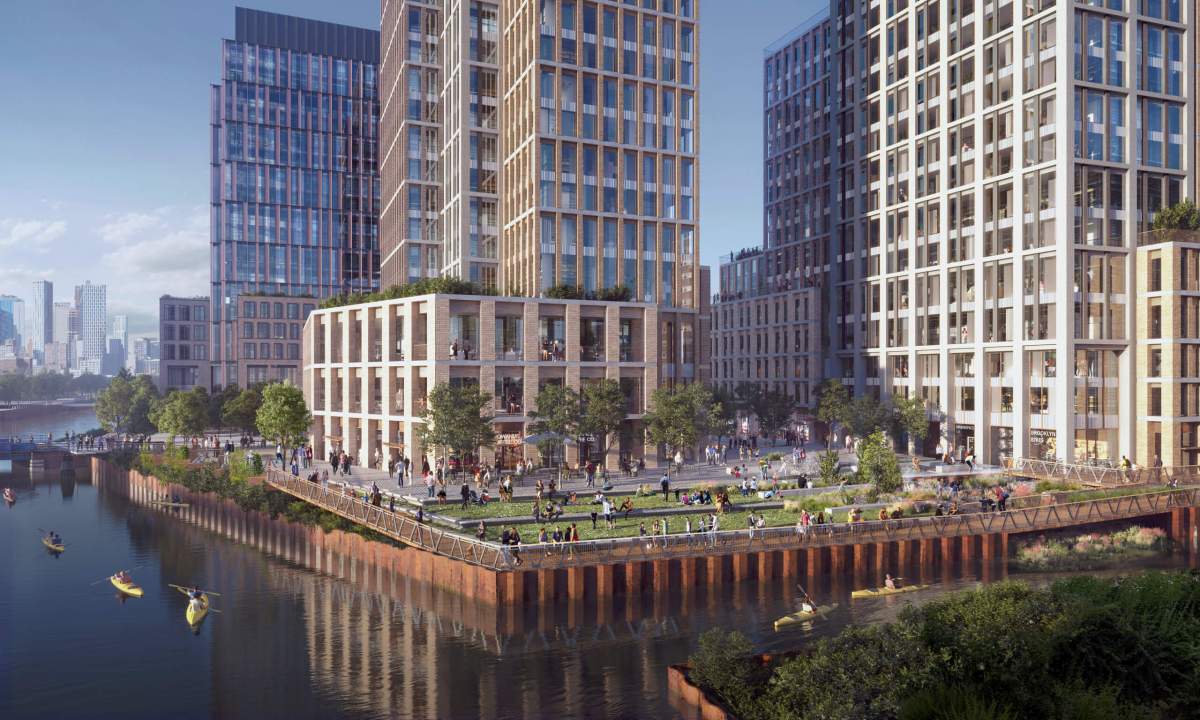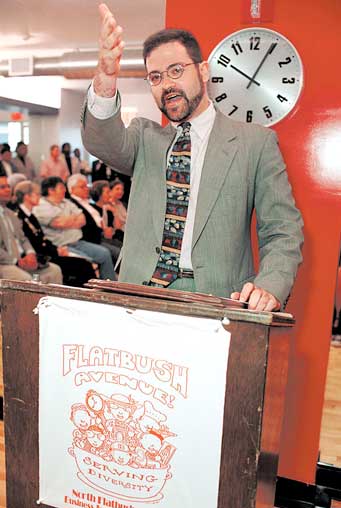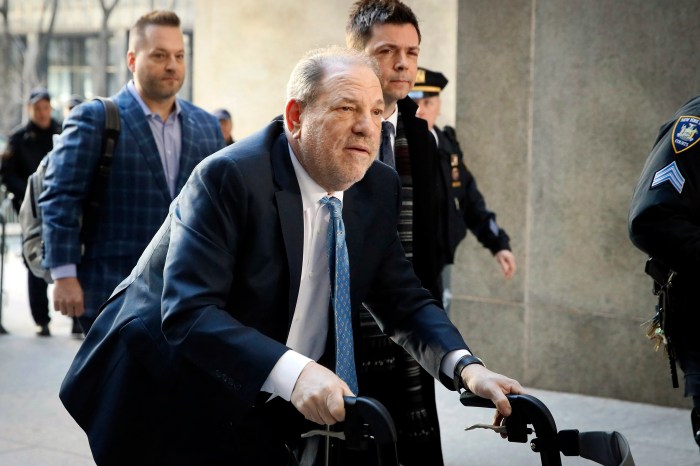Community Board 6 voted to approve the Gowanus rezoning Wednesday night, with a large array of conditions it expects the city to meet, marking a significant turning point for a project that has faced volatile prospects since its inception.
With the first step down in the Uniform Land Use Review Procedure, the rezoning proposal will now head to the borough president’s desk for approval, before arriving at the City Planning Commission and eventually the City Council. The community board voted to approve the measure by a margin of 28 to 6, with two abstentions.
The rezoning is part of the de Blasio administration’s plan to build or preserve 300,000 units of affordable housing. The administration has said that the plan would bring over 8,000 new apartments to the area by 2035, including 3,000 permanently affordable units. The rezoning of the mainly low-rise residential and industrial community, situated around the heavily-polluted canal of the same name, has been in the works for a long time: the administration first began studying the area for a rezoning in 2016, after several years of community planning and discussion on the notion. The public review process was set to begin in January of this year, but was stalled by litigation several times.
The board’s Land Use Committee approved the rezoning last week conditioned on the city meeting many commitments on issues like affordable housing, open space, and environmental remediation.
“I thought there was very, very insightful testimony that informed our committee’s deliberation, and really moving testimony,” said Alec Schierenbeck, the Land Use Committee chair, at the Wednesday night hearing. “From people who’ve lived in our neighborhood for decades, people who wished they could live in our neighborhood if they could afford it. People who are concerned about environmental degradation that’s happened for decades which has necessitated all kinds of changes in the zoning code, try to improve the state of affairs, and want real EPA oversight. And I think that those voices were reflected in the resolution.”
The conditions include (but are not limited to):
- Requiring new housing development set aside 20 percent of units for households making about 40 percent of area median income, or 25 percent of units for households making 60 percent of AMI, under the city’s Mandatory Inclusionary Housing program
- Fully funding and completing $274 million in outstanding capital needs for NYCHA’s Gowanus Houses and Wyckoff Gardens, and appointing a “NYCHA liaison” to oversee the completion of the projects
- Conducting a “racial impact study” to ensure the rezoning results in more diversity in the community
- Implementing a plan to protect the existing industrial and commercial businesses in the Gowanus Industrial Business Zone (IBZ) from displacement, and allow them to “modernize and expand”
- Making firm capital commitments to fund new parks at Gowanus Green, the Head of Canal site, and other areas, and create a “Parks Improvement District” to allow for stable funding for “community amenities and programming”
- Committing to increase school capacity, for early childhood, elementary, and secondary levels, and set aside at least one development site for a school
- Funding a “climate and flood resiliency study” to look into flood risk in the area and potential infrastructure improvements to mitigate it
- An EPA review of brownfield sites and the city’s “combined sewer overflow” projections, as part of efforts to decontaminate both the canal and land in the area
- Restoring the B71 bus route
For all of these requests to be met, the board conditioned the approval on the city’s funding and supporting of a “Gowanus Zoning Commitment Task Force” to “monitor compliance with public and private commitments, adherence to zoning requirements, and implementation of the Rezoning”
Councilmember Brad Lander, currently the frontrunner to win the Democratic nomination for City Comptroller, told the board Wednesday night that the amendments were “deeply thoughtful” and “a very strong resolution,” and that if the panel passed it, he would abide by the recommendations once the rezoning made its way to the City Council, where he has outsized power as the local rep.
“If this is the resolution, or something very similar to it, that comes out of the community board, I will take it as marching orders,” Lander said, “as an instruction manual for what I should be fighting for when it gets to the Council.”
Some board members, however, felt that voting in favor would not ensure that the recommendations were actually implemented, given the advisory role of community boards. Victoria Alexander compared it negatively to the 2005 rezoning of Williamsburg and Greenpoint, noting that the city failed to meet many of its commitments and the area has become significantly more gentrified in the years since.
“I just don’t have a lot of faith, even though we put these amendments forward, that they’re going to be executed,” Alexander said. “I’d vote for this proposal if I thought the things we’re asking for would happen. But they’re not going to, and we’re going to end up with something that’s just like Williamsburg.”























